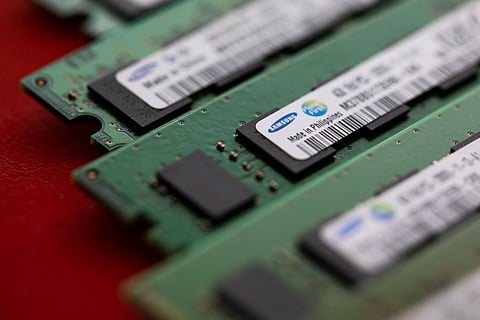Samsung’s chips business beats estimates after stockpiling push
Customers from Apple to Lenovo hastened shipments to the US over Q1 to preempt tariffs

Samsung Electronics Co.’s chip division reported better-than-expected profit after Chinese customers rushed to stockpile supplies ahead of US tariffs.
The semiconductor business reported operating income of 1.1 trillion won ($767 million) in the March quarter. The unit’s revenue totaled 25.1 trillion won, in line with the average estimate for 25 trillion won.
South Korea’s biggest company benefited from a rebound in demand for PC memory and smartphones, two of its key sales drivers.
Customers from Apple Inc. to Lenovo Group Ltd. hastened shipments to the US over the first quarter of the year to preempt tariffs by the Donald Trump administration.
Its own Galaxy S25 flagship smartphone series also buoyed earnings.
The company reported better-than-anticipated preliminary results earlier in April.
Still, concern lingers about long-term demand. Analysts including Canalys see the first-quarter surge in shipments as an acceleration of deliveries from later in the year — and any intensification in US-China tensions could put more pressure on global trade.
Samsung faces mounting challenges in its pivotal high-bandwidth memory business. The company has struggled for months to secure Nvidia Corp.’s final nod for its most advanced HBM products, which are today the most lucrative segment for memory makers.
Icheon-based SK Hynix retains the top position in providing these chips enabling AI accelerators.
Within Samsung’s semiconductor division, the contract chipmaking business has struggled, weighed down by a lack of significant orders from major clients.
This has made it harder to compete with Taiwan Semiconductor Manufacturing Co., which held a dominant market share of almost two thirds of the global foundry market in the third quarter of 2024, according to Taipei-based TrendForce. Samsung’s share stood at 9.3%.



